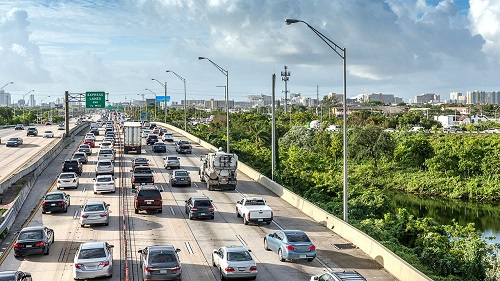
Due to Florida’s special insurance position, car insurance in the state is among the most expensive in the country. However, this does not imply that drivers there do not have access to more affordable insurance.
This article will detail some of the top auto insurance companies in the region that offer reasonably priced coverage. Additionally, we will explain how Florida auto insurance works and what factors affect premiums.
READ ALSO: Best Car Insurance Companies in USA – September 2023
What are Florida’s Leading Providers of Automobile Insurance?
When it comes to the cost of auto insurance, Florida is one of the most costly states. It can therefore be tempting to select the insurance with the cheapest premiums. But when it comes to insurance, less expensive does not always equate to better, as we have emphasised in prior publications.
Top providers of Car Insurance in Florida
Allstate
Amica Mutual
Auto-Owners
GEICO
Kemper
Liberty Mutual
Mercury
National General
Nationwide
Progressive
State Farm
The Hartford
Travelers
United Automobile
USAA
How Does Car Insurance Work in Florida?
With the exception of New Hampshire and Virginia, where coverage is not legally required, all states, including Florida, require drivers to have auto insurance.
Florida does not require bodily injury (BI) liability insurance, which covers the harm you do to another person.
Instead, you must submit a claim with your own insurer for the injuries you suffer in an automobile accident in Florida under the state’s no-fault auto insurance regulations, regardless of who was at blame. Personal injury protection (PIP) coverage is required as a result. If you are hurt in a car accident, this will pay your medical costs and missed wages.
However, just because a jurisdiction has no-fault doesn’t mean that the at-fault motorist is shielded from lawsuits. No-fault auto insurance regulations prohibit injured drivers from suing at-fault drivers for damages, but if your injuries are severe, you may still be able to do so. In the event that your medical expenses exceed the state’s minimal threshold for filing a lawsuit, you may still do so.
When it comes to coverage limits, each state has its own set of minimal criteria. According to the Florida Highway Safety and Motor Vehicles (FHSMV) division, the table below lists the minimal mandatory coverage you need in order to drive a car in Florida.
Because the figures above are just minimum requirements, they don’t always provide sufficient coverage.
Industry experts recommend that you take out the highest coverage you can afford, as well as other optional policies – including collision and comprehensive car insurance– to get full coverage. You can learn more about the benefits of full coverage car insurance in this guide.
Why are Insurance Companies Leaving Florida?
Numerous insurance companies are leaving Florida for a variety of reasons, including its vulnerability to severe weather-related calamities.
A recent announcement by AAA stated that some state residents’ houses and auto insurance policies would not be renewed. The insurer claimed that operating in Florida has become more expensive due to the “unprecedented” increase in reinsurance premiums brought on by the storm season last year.
This came after Farmers, one of the biggest home and auto insurance companies in the state, made a comparable change that impacted more than 100,000 policyholders. Jimmy Patronis, the CFO for Florida, promised to hold the business responsible.
How can you find the best car insurance in Florida?
Because of the high cost of car insurance in Florida, it can be tempting to go with the insurer that offers the cheapest coverage. But doing so comes with a risk. You may end up losing more, especially if the level of protection you get is inadequate.
To get the most out of your auto insurance, you need to understand what options are available to you and what kind of coverage these policies offer. Shopping and comparing quotes can help provide a picture of the policies you can access. Triple-I suggests that you compare the policies of at least three insurers before picking one with the best coverage.
Apart from the price, the institute recommends that you base your decision on these factors:
The types and amount of coverage: Your policy should provide sufficient protection when unexpected accidents occur. It must also meet the state’s minimum coverage requirements.
Deductibles: A higher deductible lowers your premiums because your insurer will be taking on less risk. Be sure to choose an amount that you can afford. Some insurers also offer discounts or reduce your deductible amount for every claims-free year.
Auto insurer: Examine the insurer’s financial standing because it will show whether it can afford to pay for your coverage. In order to learn how it manages claims, you may also read customer reviews.
Each state has its own system for handling auto insurance. You may read our comprehensive guide to auto insurance in the US if you’re interested in learning more about this kind of coverage.



